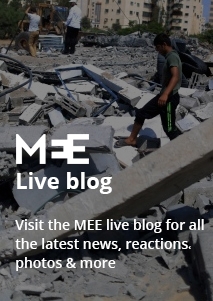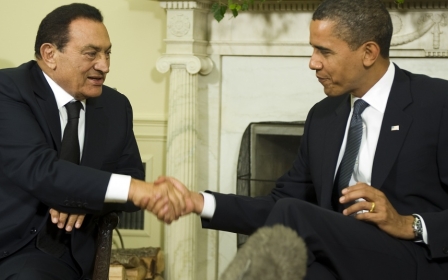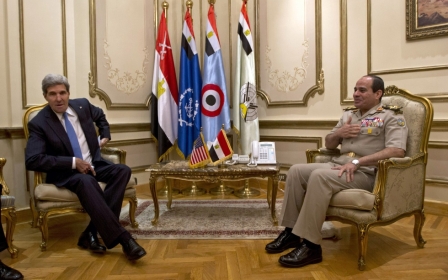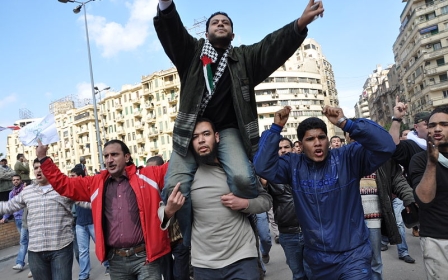Egypt takes back seat as Israel pounds Gaza
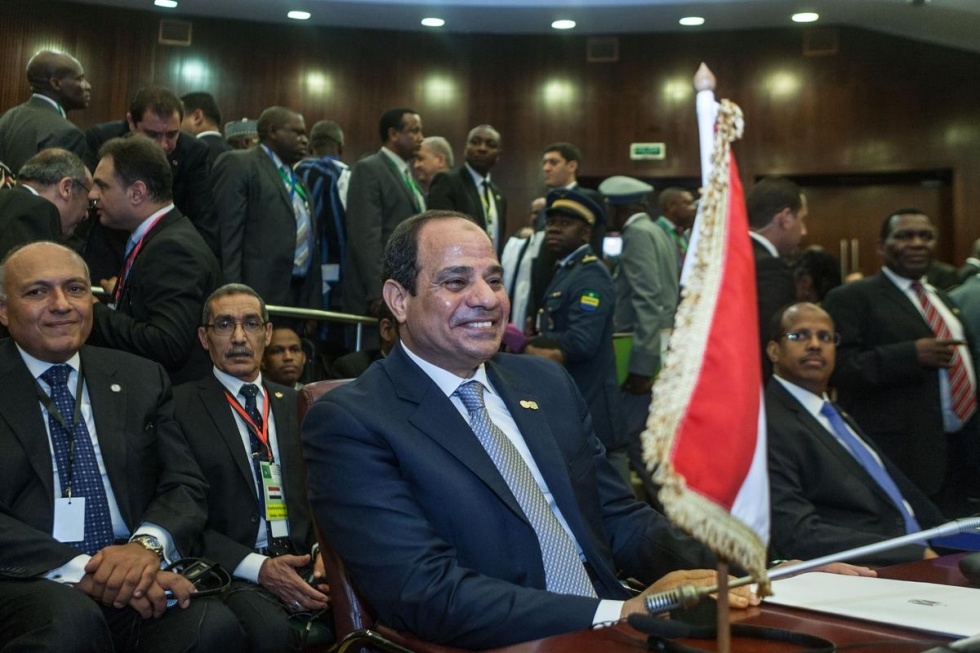
Having crushed the Muslim Brotherhood, Cairo's new government has taken a back seat as Israel pounds the Gaza Strip, which is ruled by Hamas, an ally of Egypt's Brotherhood, analysts said.
Egypt, which has a peace treaty with Israel, brokered a 2012 truce between it and Hamas that favoured Hamas, the Palestinian branch of now ousted president Mohamed Morsi's Brotherhood.
With the Brotherhood now quashed, the new government in Cairo has taken a passive approach to the latest conflict, denying Hamas a truce that could see it emerge again as a winner.
Morsi himself is being tried on charges of having colluded with Hamas to plot attacks inside Egypt, which has blacklisted both the Brotherhood and Hamas.
"There doesn't appear to be significant appetite on the Egyptian side in terms of playing a major mediating role at the moment," said Michael Hanna, and Egypt expert with The Century Foundation think-tank in New York.
The government of Egyptian President Abdel Fattah al-Sisi, the ex-army chief who toppled Morsi last year, has initially responded to the Gaza conflict by demanding both sides stop the violence.
Because of "the security establishment's long standing antipathy to Hamas, they don't mind seeing Hamas being beaten up, essentially," Hanna said.
Israeli air strikes have killed more around 100 Palestinians since Tuesday.
Isolated Hamas
Hamas demands that Israel respect the terms of the 2012 ceasefire, which relaxed a blockade on Gaza in place since 2006.
It also wants the release of detainees freed in 2011 prisoner swap, whom Israel arrested again last month after three Israeli teenage settlers were killed by unknown assailants.
Egypt has shown little interest in trying to soften Israel's position.
"It doesn't want to have a result where Hamas is freed from the substantial pressure it has been under in the past few months," said Issandr El Amrani, the North Africa director for the International Crisis Group think-tank.
Egypt on Thursday said it was opening the crossing to Palestinians wounded in Israeli air strikes.
Cairo has regularly closed the crossing since Hamas ousted the Fatah forces of Palestinian president Mahmud Abbas from Gaza in 2007, saying it would permanently reopen it if Abbas's representatives return.
Although Hamas reached a unity deal with Abbas last month to install a government of technocrats, it still controls the enclave and the agreement has faltered on Abbas's refusal to pay Hamas's civil servants.
El Amrani said Hamas would want Egyptian promises to allow more funds to rebuild infrastructure destroyed in previous conflicts, but Egypt "wants to keep Hamas in its corner."
However on Friday the Egyptian foreign ministry did criticize Israel.
"Egypt rejects the irresponsible Israeli escalation in the occupied Palestinian territory, which comes in the form of excessive and unnecessary use of military force leading to the death of innocent civilians," the foreign ministry said.
"This represents a continuation of the oppressive policies of mass punishment."
The continuing escalation of the conflict would not "create the suitable climate... for future negotiations to peacefully settle" the issue, the ministry added.
New MEE newsletter: Jerusalem Dispatch
Sign up to get the latest insights and analysis on Israel-Palestine, alongside Turkey Unpacked and other MEE newsletters
Middle East Eye delivers independent and unrivalled coverage and analysis of the Middle East, North Africa and beyond. To learn more about republishing this content and the associated fees, please fill out this form. More about MEE can be found here.


